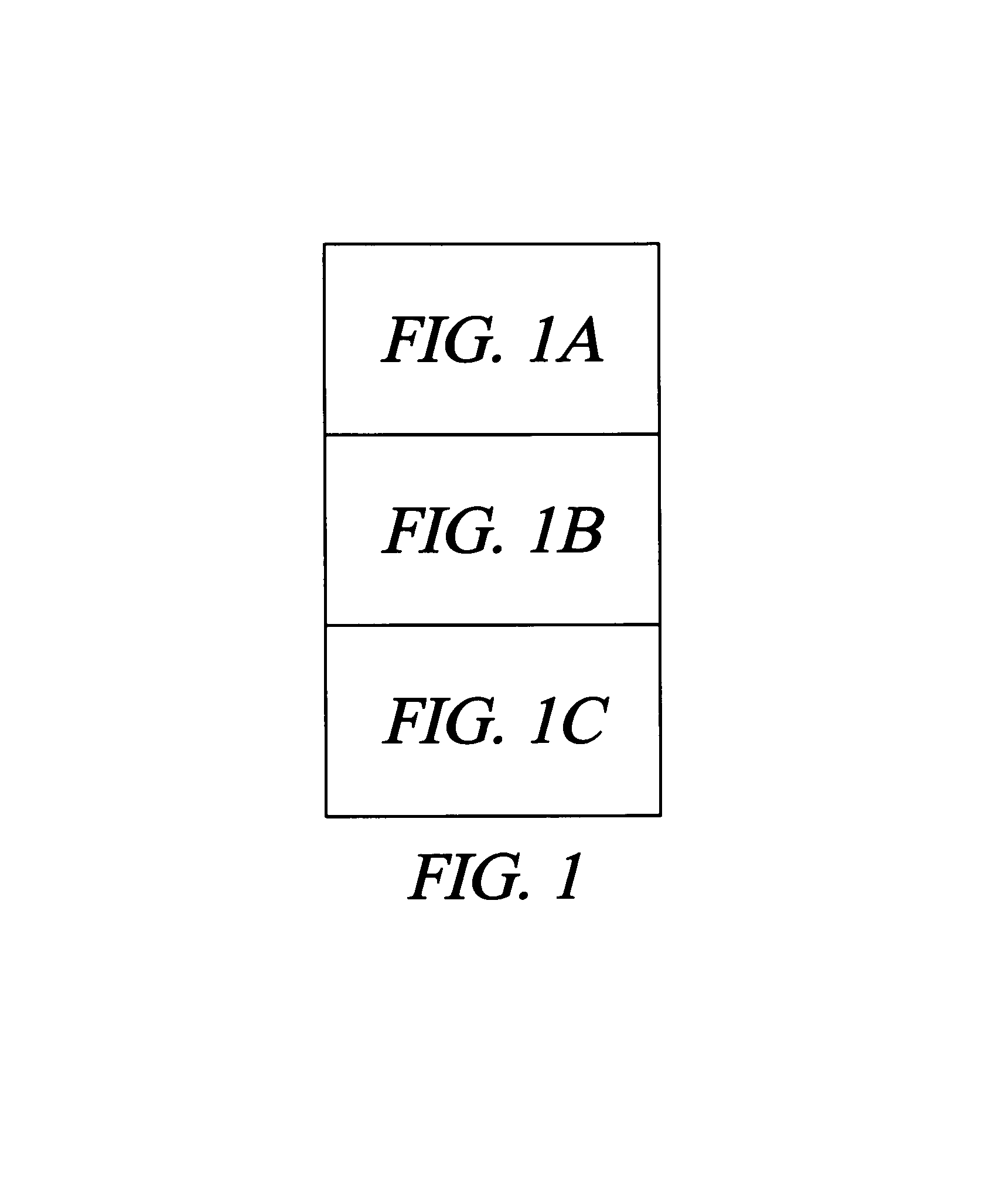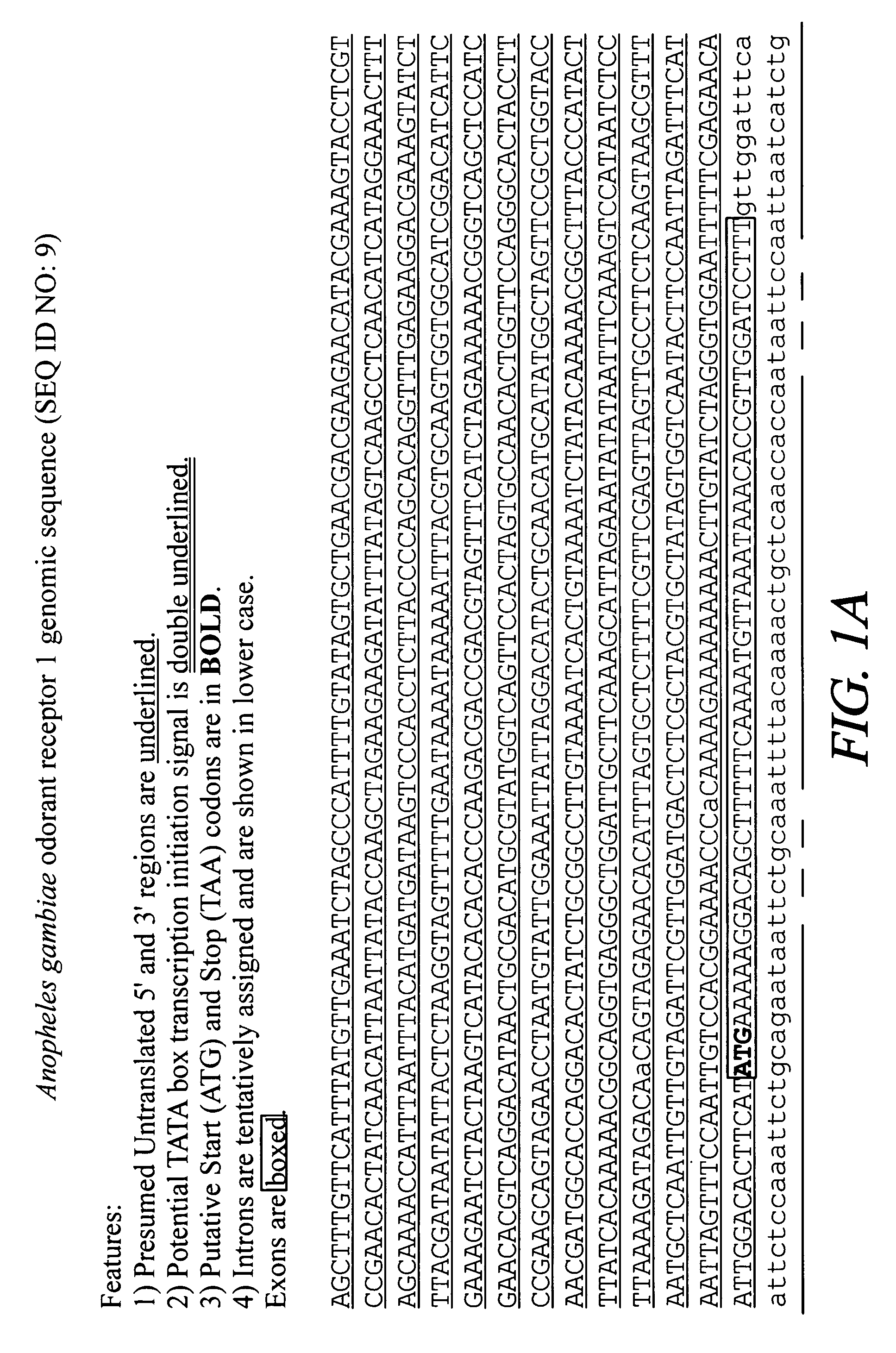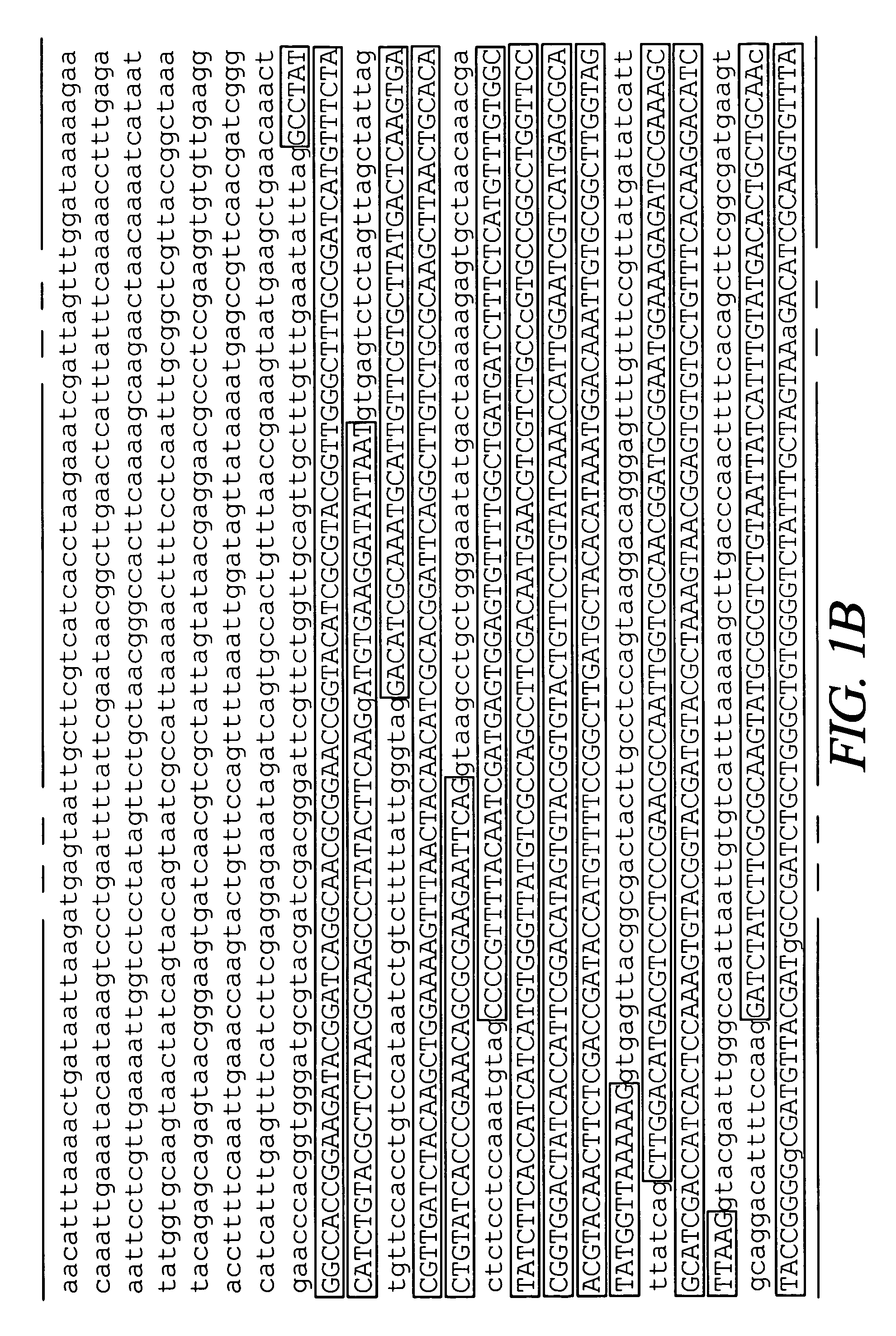Mosquito arrestin 1 polypeptides
- Summary
- Abstract
- Description
- Claims
- Application Information
AI Technical Summary
Benefits of technology
Problems solved by technology
Method used
Image
Examples
example 1
Protein Expression
[0102]A cDNA encoding arrestin 1 is subcloned into the pBlueScript II (KS) vector (Novagen, Madison, Wis.) at the BamHI / NdeI restriction sites for DNA sequencing. The cDNA encoding arrestin 1 is subsequently subcloned into the bacterial expression plasmid pET15b (Novagen, Madison, Wis.). The bacterial expression plasmid containing the arrestin 1 cDNA is transformed into BL21 (DE3)pLysS bacteria (Novagen, Madison, Wis.) for high levels of arrestin 1 expression. Methods are known in the art for isolating the expressed protein.
[0103]Expression of other nucleic acids disclosed herein is achieved by using the above-referenced method. Once the odorant receptor is in protein form, it may be used as described within this application.
example 2
Mosquito Olfaction Molecule Specific Antibody
[0104]The cDNA encoding arrestin 1 is subcloned into the bacterial expression plasmid pET15b (Novagen, Madison, Wis.). The vector is transformed into BL21 (DE3)pLysS bacteria (Novagen, Madison, Wis.) for high levels of arrestin 1 expression. Rapid purification is performed using His-Bind affinity Resin (Novagen, Madison, Wis.). Native recombinant arrestin 1 is then denatured using gel purification on SDS-polyacrylamide gel electrophoresis followed by staining with 0.05% Coomassie Brilliant Blue (Sigma-Aldrich, St. Louis, Mo.). Polyclonal antibodies were generated in rabbits by Lampire Biological Laboratories, Inc. of Pipersville, Pa. 18947. Polyclonal antibodies may be generated for any of the odorant receptors disclosed herein.
example 3
Identification of a Mosquito Olfaction Molecule Binding Compound
[0105]Arrestin 1 polypeptide is expressed in and purified from BL21 (DE3)pLysS bacteria (Novagen, Madison, Wis.). Arrestin 1 is incubated with a test agent in Phosphate Buffered Saline (pH 7.5), 0.1% Tween-20, and 0.1% broad spectrum protease inhibitors for 90 minutes at 4° C. Anti-arrestin 1 polyclonal sera is added to the reaction at a dilution of 1:2000 and incubated for an additional 60 minutes. The complexes, consisting of either polypeptide-antibody or test agent-polypeptide-antibody are isolated by the addition of 1×107 Dynalbeads M280 (sheep anti-Rabbit IgG) followed by incubation at the same temperature for an additional 60 minutes. Isolation of the complexes is completed by using the DYNAL Magnetic Particle Concentrator (Dynal Inc., Lake Success, N.Y.). The complexes are washed three times with broad spectrum protease inhibitors. Content of the complexes is assayed by SDS-PAGE followed by silver staining and w...
PUM
 Login to View More
Login to View More Abstract
Description
Claims
Application Information
 Login to View More
Login to View More - R&D
- Intellectual Property
- Life Sciences
- Materials
- Tech Scout
- Unparalleled Data Quality
- Higher Quality Content
- 60% Fewer Hallucinations
Browse by: Latest US Patents, China's latest patents, Technical Efficacy Thesaurus, Application Domain, Technology Topic, Popular Technical Reports.
© 2025 PatSnap. All rights reserved.Legal|Privacy policy|Modern Slavery Act Transparency Statement|Sitemap|About US| Contact US: help@patsnap.com



